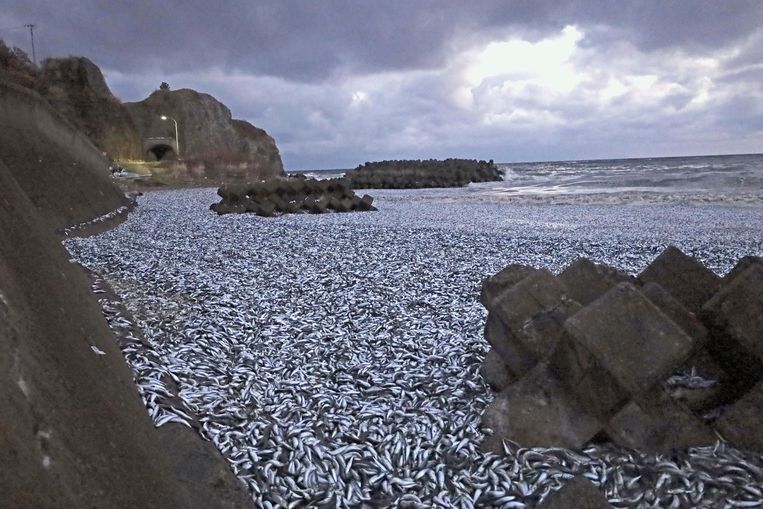Earlier this month, an estimated 1,200 tons of sardines and mackerel were found floating in the sea off the fishing port of Hakodate on the Japanese island of Hokkaido. On Wednesday, officials in Nakiri, a city on the Pacific coast hundreds of miles south of Hokkaido, encountered 30 to 40 tons of Japanese sardines (also known as sabas) that had been spotted in the area a few days earlier.
Local fishermen rushed to collect the fish, fearing that their decomposing corpses would lead to a drop in oxygen levels in the water and thus harm the marine environment.
A fisherman who has been working in the area for 25 years told the Japanese newspaper: “I have never seen anything like this before.” Mainichi Shimbun. “Only last year we started catching saba in Nakiri. I wonder if the marine ecosystem is changing.
Experts speculate that migrating fish became stranded in both areas after being hunted to the point of exhaustion by yellowfin and other predatory fish. Mass die-off can also occur when the water temperature suddenly drops, causing the fish to go into shock.
But no one could confirm the cause. “The cause is unknown at the moment,” Meikin Fujiwara, a local fisheries official, told the newspaper. “We plan to take samples of seawater at the site and investigate it to determine the cause.”
Fukushima nuclear power plant
British newspaper daily Mail She linked the washed fish to the release of treated water from the Fukushima nuclear power plant. The newspaper pointed out that the dead fish washed ashore four months after the station discharged water into the Pacific Ocean that contained small amounts of the radioactive isotope tritium. This is something the Japanese government strongly opposes.
The International Atomic Energy Agency approved the plan and said in a safety assessment that the water discharge would have a “negligible radiation impact on humans and the environment.”
China, which has opposed the discharge and imposed a ban on Japanese seafood, has been accused of hypocrisy because its nuclear power plants routinely pump out wastewater containing higher concentrations of tritium than the tritium found in the Fukushima drain.
“We are concerned about the unconfirmed information,” an official from the Japanese Fisheries Agency told the newspaper. Asahi Shimbun. He said: “No abnormalities were found in the results of water monitoring surveys.”
Municipal officials in Hakodate are urging local residents not to consume hungry fish, as there have been reports of some residents collecting large quantities of fish to sell or eat. “We don’t know for sure under what conditions these fish were washed up, so I don’t recommend eating them,” said Takashi Fujioka, a fisheries researcher.

“Creator. Award-winning problem solver. Music evangelist. Incurable introvert.”







More Stories
Thousands of Spaniards support Prime Minister Pedro Sanchez and ask him to remain in office.
Repercussions and scenarios after the possible resignation of Prime Minister Pedro Sanchez in Spain
The United States is accelerating military aid to Ukraine, while Russia is trying to stop it as much as possible